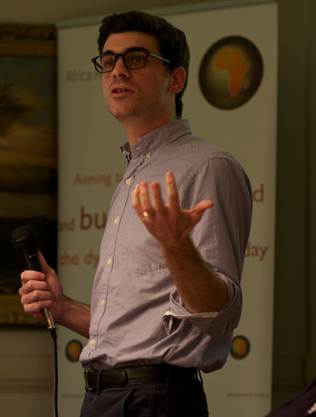Post-Brexit vote, we are posting some blogs from our Cabot Institute members outlining their thoughts on Brexit and potential implications for environmental research, environmental law and the environment.
————————————————
Is Brexit the canary in the mine for global environmental governance?
Britain’s vote to leave the European Union has troubling implications for global environmental governance. Water pollution, air pollution, and climate change have no regard for political borders. The world needs supranational political institutions to facilitate a coordinated response to these challenges. The EU is a relatively effective supranational institution for progressive environmental governance. EU nations have enjoyed major improvements in recent decades in areas like air quality, bathing water quality, nature preservation, and acid rain. The EU is one of the most constructive voices in global climate governance.
The decision to leave is therefore likely to present some setbacks with regard to regional environmental governance. But more importantly it signals broad disenchantment with supranational political institutions more generally. People resent and distrust them as distant and undemocratic. And it’s not just the British public that feels this way. The impulse to withdraw and disengage is increasingly evident across Europe and the USA.
This trend is all the more worrying when we look at the profile of the average Leave voter. A recent YouGov survey of British voters found that Leave supporters are deeply distrustful of just about everyone. They don’t much trust academics—as Vote Leave’s Michael Gove put it, “people in this country have had enough of experts.” Nor do they trust the opinions of think tanks, economists, or international organisations like the UN. Just 8 percent trust British politicians. By contrast, a majority of Remain voters generally trust academics, economists, business leaders, and international organisations. (Neither group trusts journalists or, perhaps more positively, celebrities.) But, as we now know, voters for Remain are in the minority.
This ‘trust deficit’ is at the root of the post-factual politics that seems to have taken hold across much of the Western world.
Without trust in ‘experts’ such as environmental scientists we will not be able to build an informed consensus about the nature of the problems we face, let alone go about solving them. Without trust in politicians we will not be willing to accept difficult decisions with short-term costs but long-term benefits, including for younger and future generations. Without trust in supranational institutions, such as the EU and UN, we will not be able to coordinate our efforts in addressing many of the greatest threats to human welfare, all of which are supranational in nature.
There has been much commentary about the generational divide in the Brexit vote, perhaps offering some hope for the future. Younger people supported Remain by a wide margin indicating a willingness to remain engaged with Europe. But younger generations turned out in much smaller numbers and low youth turnout is consistent with the evidence that millennials are less politically engaged than previous generations. They are also less trusting. (See evidence of mistrustful millennials here and here).
In short, young people appear to be more open to international cooperation, but disinclined to engage with domestic politics. In the worst case scenario, this could be a recipe for divisive politics in which motivated minorities on both sides of the political spectrum seize the centrist vacuum to promote their worldviews through formal political institutions.
What then does the future hold? The cacophony of narratives of next-steps is almost unprecedented in British history. No one appears to have a clear plan with an emergent consensus. But there is one potential ray of hope in this political drama. If young people—and millennials in particular—are shocked into engaging more actively and passionately with formal political institutions, the Brexit vote might well turnout not to be the canary in the mine so much as an important moment of political awakening.
Let us hope this is the case. For the future of environmental governance is ultimately in the hands of our worldly but politically disengaged youth.
——————————————–
This blog is written by University of Bristol Cabot Institute members Dr Sean Fox (Political Economy of Development & Urban Geography) and Dr Malcolm Fairbrother (Global Policy and Politics), both from the School of Geographical Sciences.
 |
| Sean Fox |
Read other blogs in the Brexit series:

